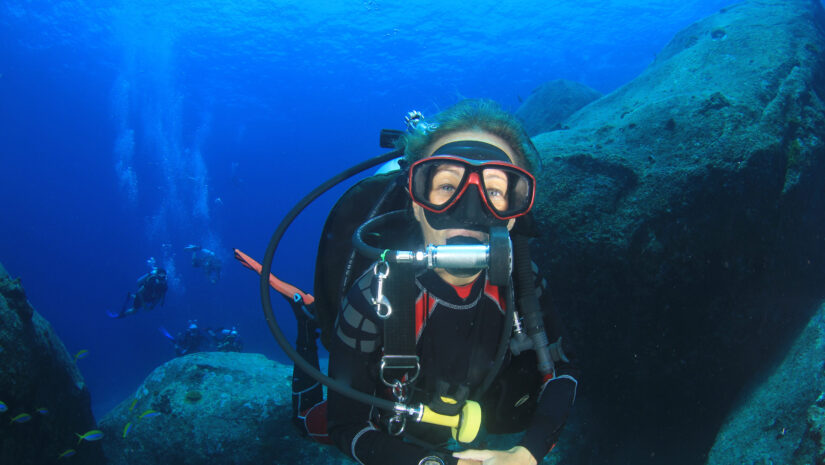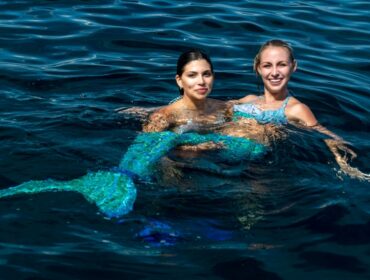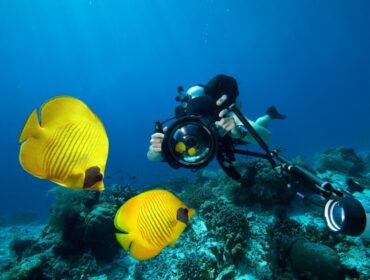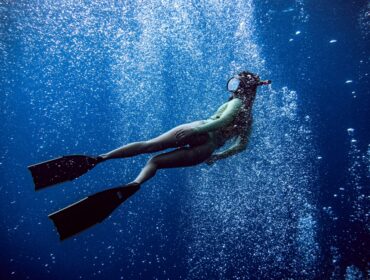While you might be tempted to celebrate or jump into your next adventure after a dive, hold up! Scroll down to see 7 of what not to do after scuba diving. It’s to keep you in the clear of any health risks!
1. Flying.
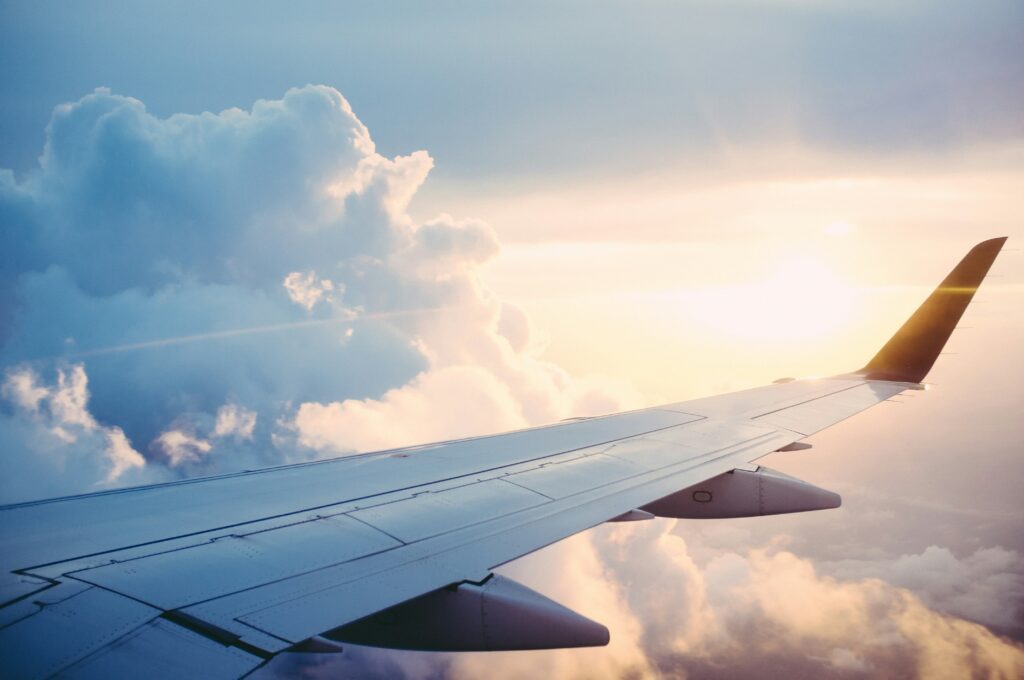
As tempting as it might be to head to your next destination right after your dive, you need to press the brakes. Let me explain.
When you dive, you absorb a lot of nitrogen because of increased pressure. Normally, this nitrogen starts to leave your system as you ascend slowly to the surface. But once you get to shore, the process of releasing nitrogen still doesn’t stop.
And with that, something crazy happens if you get on a flight too soon after a dive. Getting on a plane exposes you to reduced cabin pressure, which could cause nitrogen bubbles to expand in your bloodstream. Eek.
For a one no-decompression dive, wait at least 12 hours. For multiple dives over a day or several days, give yourself 18 hours. For dives requiring decompression stops, play it safe and wait 24 hours.
2. Sleeping right away.
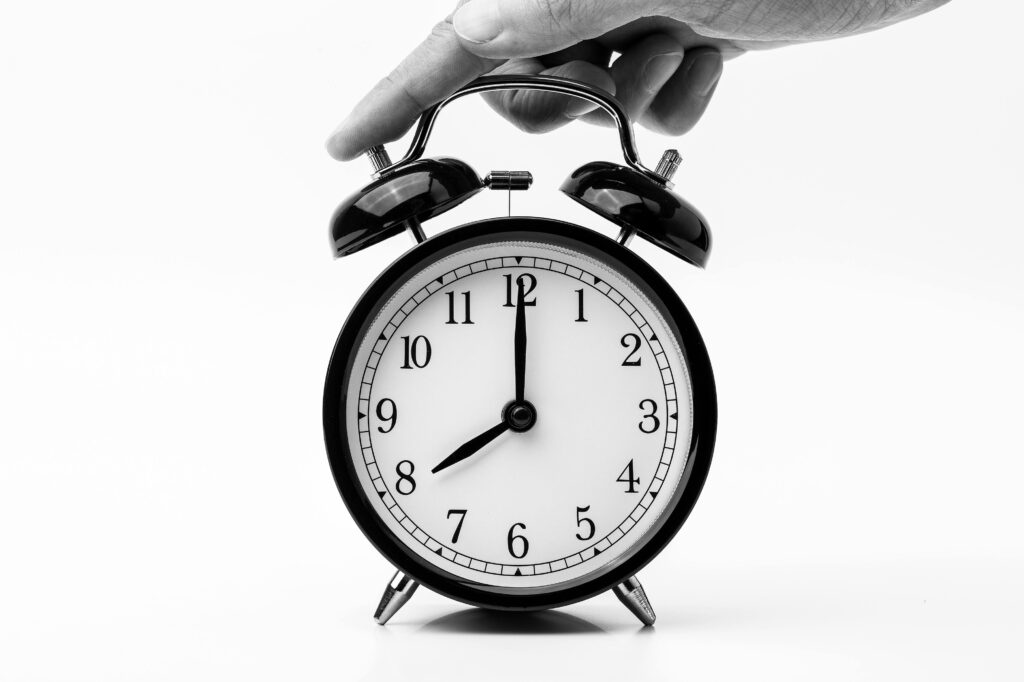
Alright, fellow sleepyhead who feels the urge to nap or hit the hay after a dive. I’m gonna have to stop you right there! Napping immediately after a dive might not sound so desirable with what I’m about to tell you:
When you sleep, your body slows down (including your circulation). This can make it harder for your system to get rid of the nitrogen that’s hanging out in your bloodstream. And yes, you guessed it, this could increase your risk of decompression sickness. Diving is already suuuch a physical workout, and your body needs time to off-gas that extra nitrogen. It can’t do that very effectively if you’re curled up in bed snoozing away.
So, what’s a sleepy diver like you to do? Give yourself a buffer between diving and sleeping. Stay up and relax for at least an hour or two after your dive.
3. Drinking alcohol.

After diving, your body is very delicate. Between the saltwater and constantly breathing in and out through a regulator, you can end up a bit dehydrated. Yeah, even if you don’t feel like you are!
Being dehydrated makes it hard for your body to push out nitrogen, which is crucial for avoiding decompression sickness.
But don’t worry, okay? I’m not saying you have to skip the drinks altogether. Just wait a few hours after your dive and make sure to rehydrate properly first.
4. Taking baths and showers with hot water.

So, here’s the thing… jumping into a hot tub or cranking up the heat in the shower boosts your circulation. Blood flows faster, and because of it, nitrogen bubbles move around more quickly than your body can handle. Thus, you guessed it: leading to decompression sickness.
So, what’s the alternative? You can still treat yourself, but tone back the temperature. Opt for a warm shower instead of one that feels like you’re walking into a volcano. Save the hot tub for later!
5. Exercising.
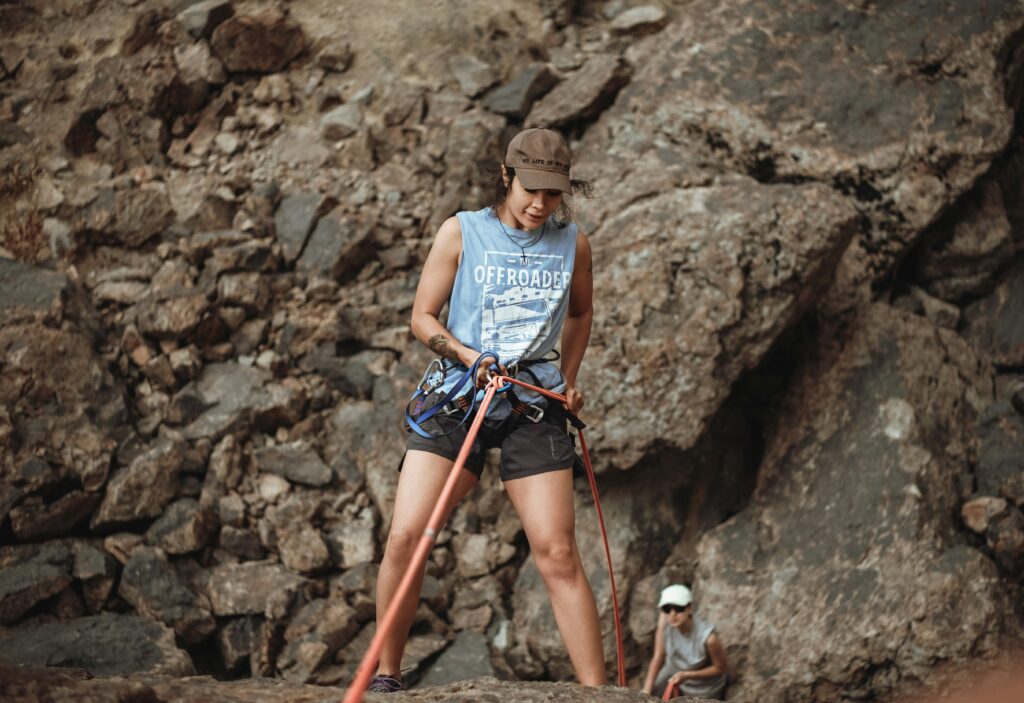
Sure, exercise is fantastic, but after a dive, your body is already working hard to eliminate the extra nitrogen absorbed underwater. Pushing your body with intense activity can ramp up your blood circulation. It sounds good in theory but it can actually move those nitrogen bubbles around faster than you can manage. Oof!
So, take it easy! The ocean has already given you a full-body workout, so allow your body some time to rest and recover. Instead, enjoy some light stretching, yoga, or a leisurely stroll along the beach.
6. Freediving/snorkeling.
Even at shallow depths, freediving introduces additional pressure to your body, which can disrupt the off-gassing process of nitrogen absorbed during your scuba dive. According to the Divers Alert Network (DAN), this is mainly due to two reasons:
First, the physical exertion of freediving can increase bubble formation in your body.
Second, any nitrogen bubbles that are already present can shrink under water pressure and potentially enter your arterial circulation.
What does this mean for your post-dive plans? Weeell, if you’ve just come up from a dive, it’s best to give your body a significant surface interval before embarking on any freediving adventures. Here’s a quick breakdown for your reference:
| After multiple no-stop dives or dives over several days | Wait 18 hours before freediving |
| After a dive that required a decompression stop | Wait 24 hours before freediving |
| After a single no-stop dive | Wait 12 hours before freediving |
7. Recreational activities in high altitudes.
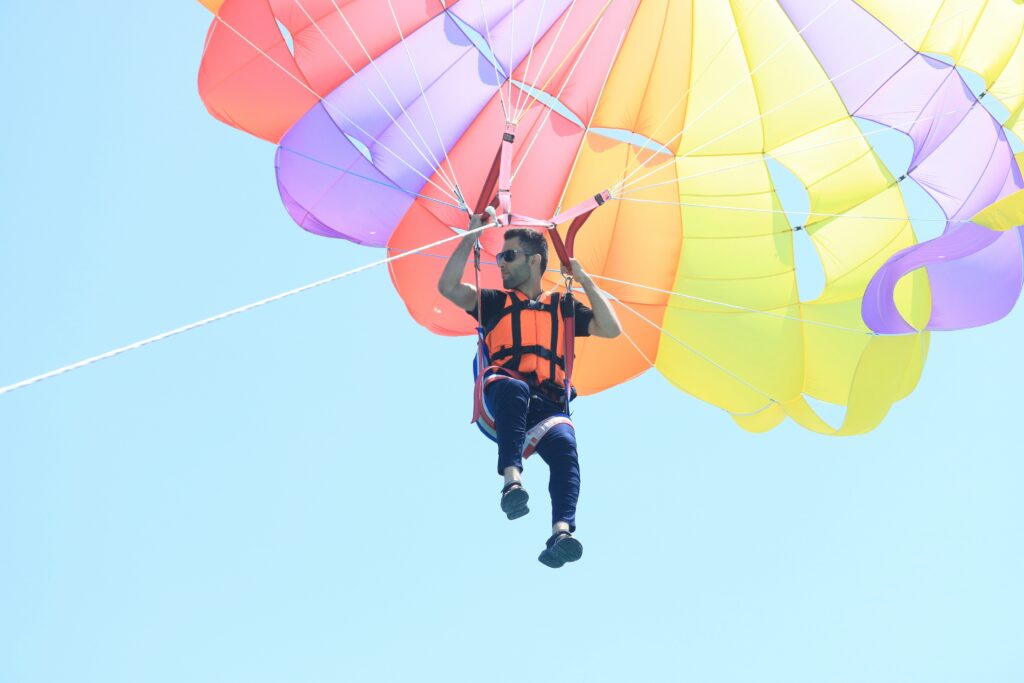
Being at high altitudes too soon after a dive can increase your risk of decompression sickness (DCS).
Going on ziplines.
Even if the zipline itself isn’t soaring to the heights of a mountain peak, the elevation of the surrounding area might still be enough to put you at risk. That’s why it’s crucial to check the elevation of your zipline destination before booking your adventure.
The rule to follow: Wait at least 24 hours post-dive before zipping off on your next treetop adventure.
Mountain climbing or driving.
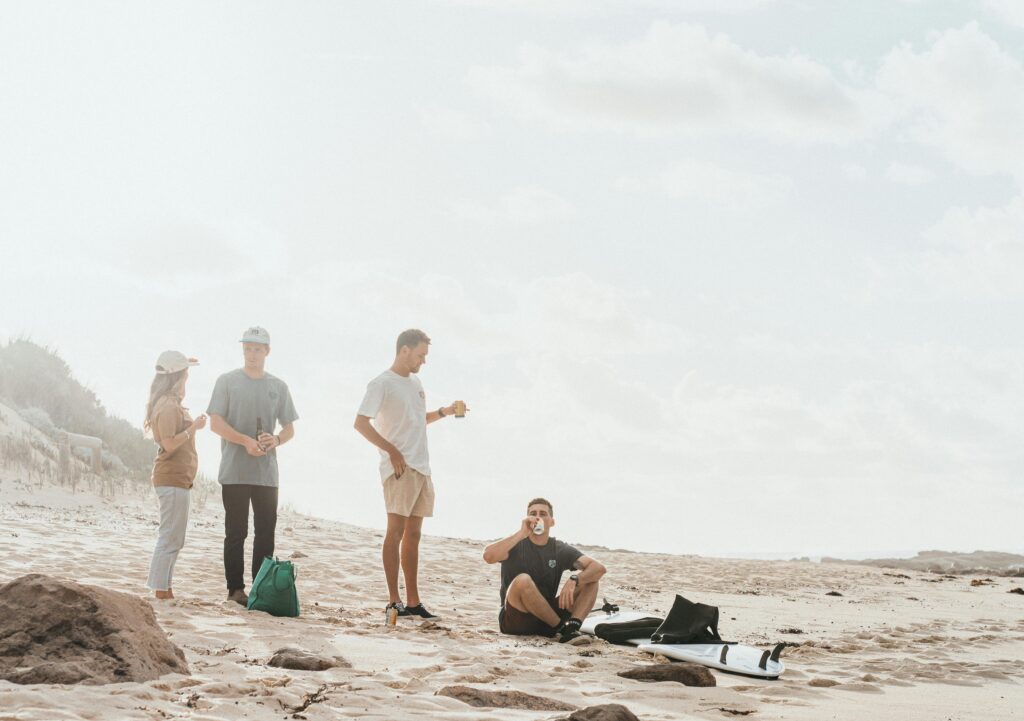
If you’re planning an epic adventure that includes both diving and mountaineering (you thrill-seeker, you!), always climb first and dive later. Climbing before your dive helps minimize the risk of DCS and lets you enjoy both experiences without worry.
Skydiving, paragliding, or parasailing.
When you jump out of a plane or parasail through the skies, you’re rapidly changing altitude. This sudden shift in pressure can mess with the nitrogen still lingering in your body from your dive.
Even if you’re not soaring to 30,000 feet, these activities can still be risky enough to trigger decompression sickness.
FAQs: What Not to Do After Scuba Diving
For a single no-decompression dive, wait a minimum of 12 hours. After multiple dives or dives over several days, wait at least 18 hours. For dives requiring decompression stops, wait 24 hours.
Enjoy a beach stroll, lounge by the pool, hydrate, grab a bite, or explore nearby towns. Do relaxing activities until you’ve cleared that 24-hour mark post-dive.
A good rule of thumb is to take it easy for 12-24 hours, depending on how many dives you’ve done.
It’s not super common, but it can happen. Some divers feel a bit queasy due to motion sickness, dehydration, or exhaustion. More serious cases could involve decompression sickness (DCS), but that’s rare if you follow the safety rules.
Go for light and healthy meals that help rehydrate and replenish your energy. Fresh fruits, lean proteins, and complex carbs like whole grains are great options.
Stay safe and know what to do after scuba diving.
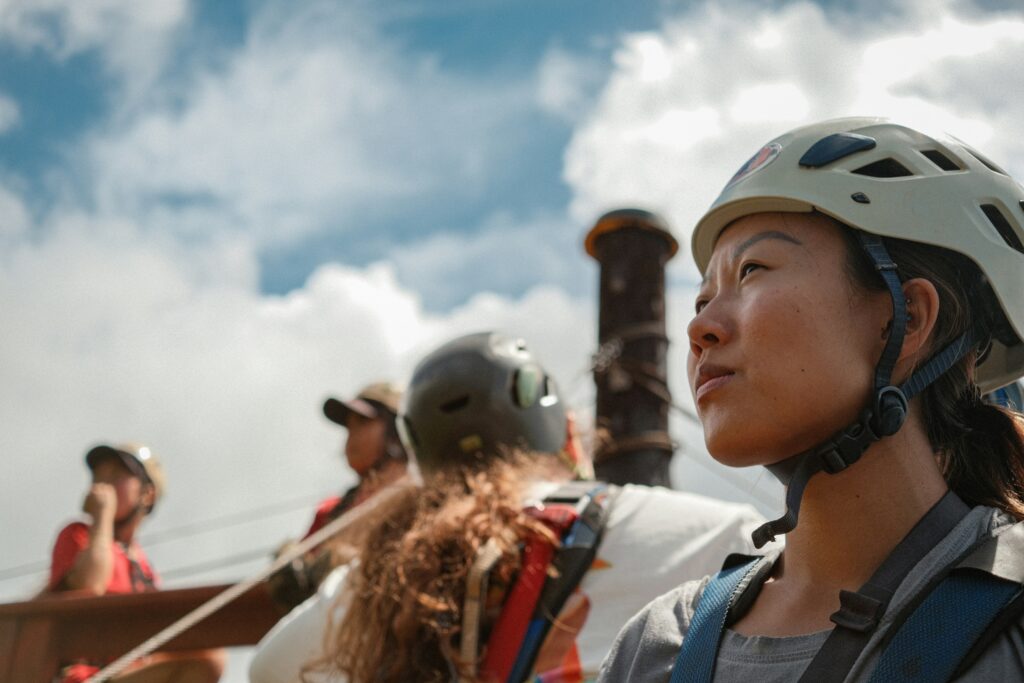
Diving is an incredible experience, but what you do after you get back on shore is just as important. Avoiding certain activities like flying, ziplining, intense exercise, and even hot tubs (I know!) helps reduce your risk of decompression sickness and keeps you safe.
Give your body time to off-gas that annoying nitrogen, and you’ll be free to enjoy all the post-dive fun without any interruptions.

